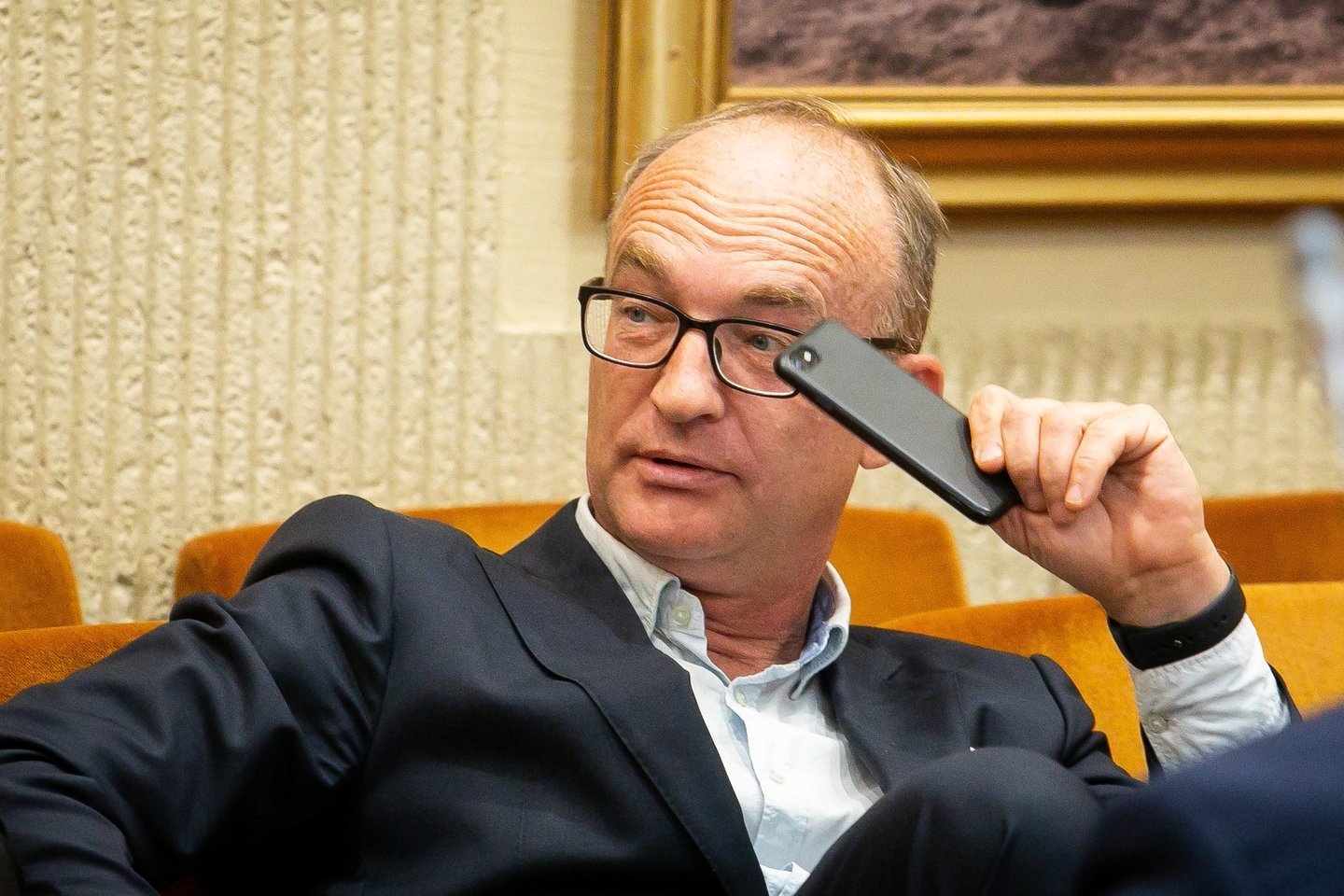"We have received an unofficial answer so far that such an inquiry might exceed the President's constitutional powers - which sounds very strange. It is probably not for the Ministry of Foreign Affairs to assess the constitutionality of a request. But in this case, there is no answer and the question of whether there was a competition (...) will be left hanging", Jansonas told the news portal tv3.lt in an interview on Wednesday.
"If the Ministry of Foreign Affairs feels that it is susceptible information, the Ministry of Foreign Affairs, like any other state institution, can grate that information - from "official use" to "top secret". The President can and must have access to that information in any case. And once that information is made available, there would be no doubt about whether there was a competition," he explained.
As previously reported, when the President's Office asked the Chancellor of the Ministry of Foreign Affairs, Inga Černiuk, to provide documentation on the competition for the selection of ambassadors, the Ministry pointed out that such requests could be an overstep of the powers provided for in the Constitution.
Daukantas aikštė asked for information about the competitions on Tuesday after Presidential Adviser F. Jansonas mentioned the need to change the procedure for appointing ambassadors.
Insists that the President will not be blackmailed
In general, when explaining why he thought the scandal over the ambassador to Poland had broken out, Mr Jansonas pointed out that it was all about selecting the best candidate for the job.
"It is a question of the best candidate for a critical post, representing Lithuania in a country currently a strategic partner and probably one of Lithuania's closest allies. The President, exercising his constitutional powers, asked for nominations - the submitted nomination did not suit the President; he asked for alternative nominations. Since he did not receive them, the issue is stuck because, again, in our opinion, there should be a much larger number of candidates for such a post and the possibility of selecting the best one," explained Jansonas on his vision for Daukantas Square.
"To choose from one... In this case, he assured that the attempt to turn the President into a notary who stamps any name brought to him will not work", he assured.
The presidential adviser stressed that the Head of State will not be blackmailed or pressured into accepting the ambassadorial nomination to Poland.
"The procedure for the appointment of an ambassador is a coordination between two institutions, and then when this is brought out into the public and pressure is put on him through the press, through the media, through Facebook posts - this is pressure," Jansonas elaborated.
"The President will never be blackmailed or pressured to take a decision one way or the other," he stressed.
Lithuania has been without an ambassador in Poland since the beginning of September
ELTA recalls that the Presidency and the ruling party continue to argue about who is to blame because the embassy in Poland, which is strategically important for Lithuania, does not have an ambassador. Foreign Minister Gabrielius Landsbergis says he has no answer about why the Lithuanian embassy in Poland has been without a head for five months. The head of the country's diplomacy says he has submitted at least two ambassadorial nominations to the President, which were rejected.
For its part, the Presidency explained that the candidate proposed by the Ministry of Foreign Affairs (URM) for the post of ambassador did not speak Polish. The Head of State also pointed out that the Ministry was politicising the appointment of an ambassador to Poland and was trying to patronise certain nominees for the post.
Mr Nausėda has also been accused of criticising the Ministry of Foreign Affairs and making public statements that the appointment of diplomats is politicised. Albinas Januška, a signatory of the 11 March Act, also criticised the Head of State, claiming that Nausėda was deepening the conflict between the institutions.
In response to such remarks, Frederikas Jansonas, Senior Adviser to the President, stated that the so-called statesmen clan was trying to take over positions of national importance in the Ministry of Foreign Affairs and the diplomatic service. The ruling party criticised such statements, but Mr Nausėda pointed out that Mr Jansonas had shared his insights after some analysis. Later, the adviser also spoke about the need to change the selection procedure for diplomats.
The Lithuanian Ambassador to Poland, Eduardas Borisovas, was recalled on 7 September at the end of his term of office.
